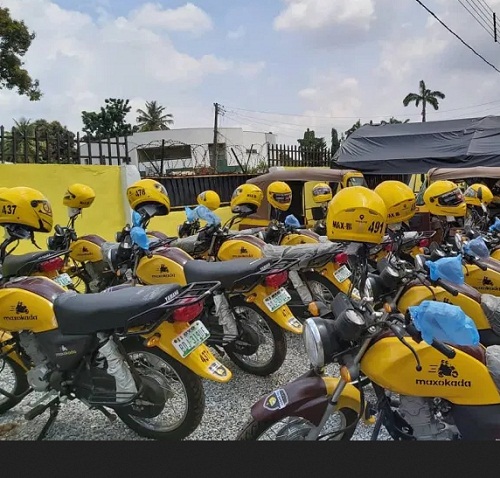Nigerian mobility startup, Metro African Xpress (MAX) has successfully completed the issuance of a ₦400 million ($1 million) 1-year fixed-rate notes series 1 Bond. The Bond is the first part of its newly floated ₦10 billion/$22 million multicurrency Private Company Bond program (dubbed the “PCB Program”).
The startup made this announcement on September 28, 2020, and the transaction was arranged by DLM Advisory Limited, a Nigeria based developmental investment bank regulated by the Securities and Exchange Commission (SEC).
For anyone unfamiliar with the capital market, this might seem a rare move for a startup and probably bit confusing. By issuing bonds, most established companies can raise money from investors without having to give up equity or repay high-interest rates from bank loans.
Guy-Bertrand Njoya, Chief Financial Officer (CFO) of MAX, explains that the startup has explored several other means of raising money in the past, which include venture funding, angel investments, bank loans, among others. The new move signals its first foray into Nigeria’s capital market.
According to data from Crunchbase, since its launch in 2015, MAX has raised up to $8.2 million in 4 major funding rounds. The first in 2015, was a convertible note of $100,000, while venture rounds came in 2016, 2019 and 2020 at $1 million, $7.2 million and $100,000 respectively.
According to Njoya, the bond issuance is part of a larger program and is structured in a way that the startup can keep raising funds by issuing more bonds at any other time they deem fit.
“Normally, you could issue a bond for a fixed term, and when it ends, you begin the entire process with SEC and all the parties involved, but this is structured so we can keep raising funds at different periods, in different types of currencies,” he says.
Njoya reveals that the multicurrency clause was placed with an eye for future expansion to other countries.
“We are building pan-African solutions across the value chain of the mobility sector, and the structure of the new bonds will go a long way to help us achieve that.”
An eye to expand vehicle financing
MAX launched as a logistics startup in the traffic-laden city of Lagos, but it has since pivoted to various offerings in transport and logistics services and is currently focused on having a substantial presence across the entire value chain the in the mobility sector.
The ban on commercial motorcycles and tricycles in Lagos made things a bit shaky, but it pivoted to deliveries, and currently has a foothold in six states in Nigeria.
In June 2019, the company announced plans to introduce bikes after closing a $7 million round led by Kenyan Venture capital firm, Novastar Ventures, and Japanese multinationals, Yamaha. In August 2020, it finally unveiled these bikes.
MAX says the initial $1 million float received strong interest from both local and foreign highly reputable local and international fixed-income investors, and the proceeds from the bond would be used to fund its growing vehicle financing program across, 2-wheeler, 3-wheeler and other vehicle classes.
Njoya insists that MAX’s vehicle financing program would allow people, especially those ineligible to receive financing from banks, to get various types of vehicles which they can use for commercial activities.
This move could also be good news for riders in Ekiti who stand to benefit from MAX’s double down on vehicle financing.
Recall that the company recently partnered the Ekiti state government on ‘Metrogov’ a platform to digitise the state’s transport sector. Among several other benefits, it listed vehicle financing as one of the major benefits of the strategic move.
Interestingly, since the bikes and tricycles were securitized in the bond float, investors will be getting returns from the proceeds once these vehicles are commercialised.
Source: Techpoint










